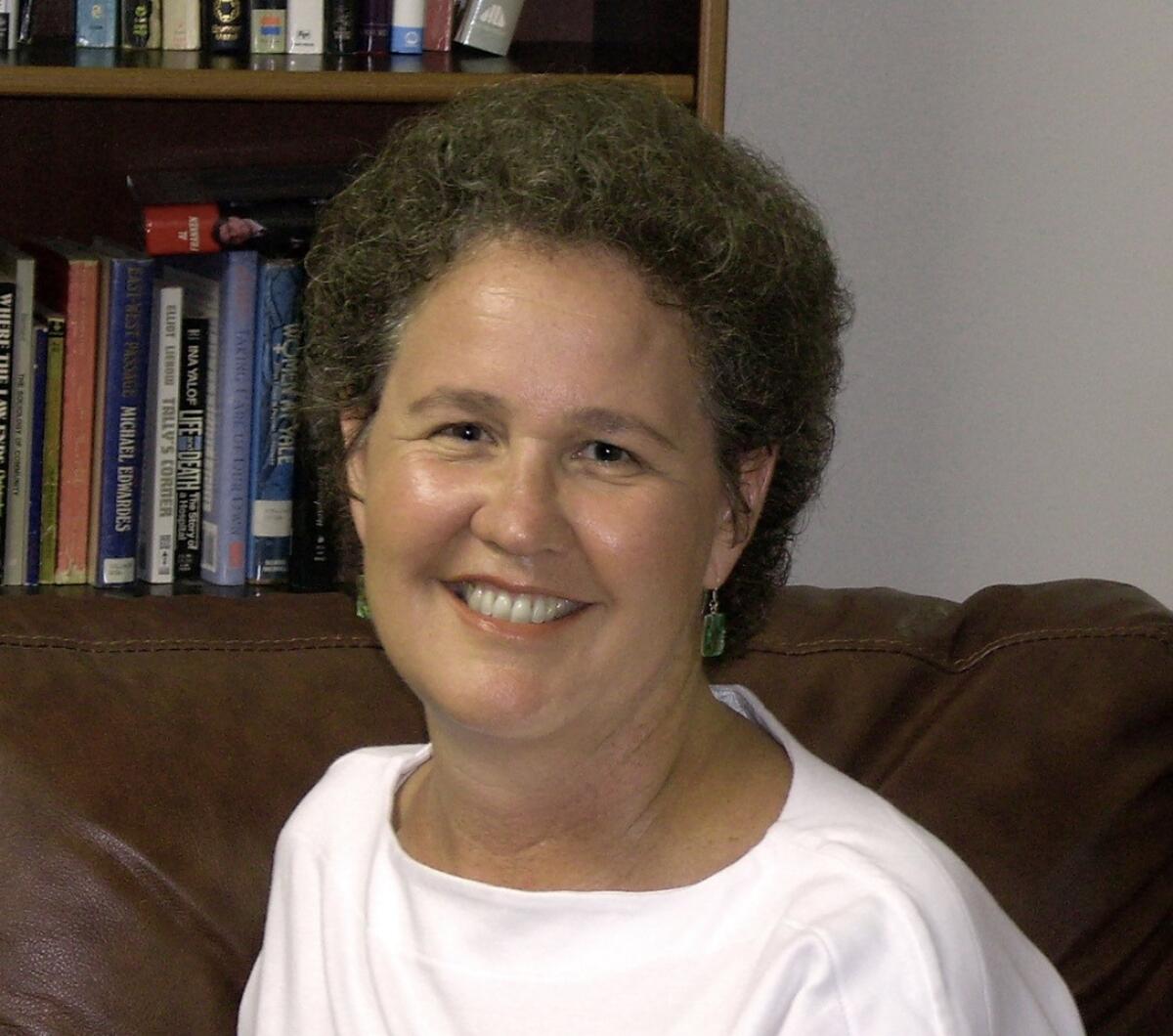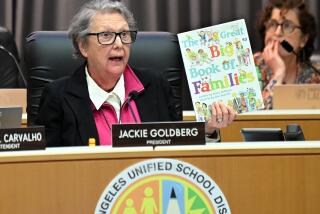Biden’s education transition team gets California leader: Linda Darling-Hammond

Linda Darling-Hammond, a leading figure in California education policy, is heading the education transition team for President-elect Joe Biden, where she is expected to emphasize support for teachers and traditional public schools.
Darling-Hammond, president of the state Board of Education, has long been associated with research and advocacy in support of top-tier teacher preparation, continued professional development and efforts to retain teachers in the profession.
Going into 2020, she helped Gov. Gavin Newsom set new spending priorities for education, which then were sharply curtailed amid the coronavirus emergency. She is the founding president of the Palo Alto-based Learning Policy Institute and helped redesign the Stanford Teacher Education Program.
The Biden camp declined to make Darling-Hammond available for an interview, but “when it comes to teachers, [Biden] is going to boost teacher pay and invest in professional development and help educators pay off their own student loans,” said Stef Feldman, the Biden campaign’s national policy director.
One closely watched area in the Biden administration will be the growth of charter schools, which are privately operated, government-funded public schools. Most are nonunion. While not vocally opposed to charters, Darling-Hammond is generally considered to be an ally of teachers unions.
At the federal level, there’s been bipartisan support for rapid charter growth over the terms of the last three presidents, going back 20 years. And both Republican George W. Bush and Democrat Barack Obama exerted federal influence to promote standardized test-based accountability. In a swing of the policy pendulum, Congress returned more latitude over education to the states during the Trump administration.
The transition team is heavily seeded with former Obama administration staff, which is a concern for Diane Ravitch, an education historian who opposes charters and “over testing,” but admires Darling-Hammond, who also headed the education transition team for the incoming Obama administration in 2008.
Four members of the 20-person, all-volunteer education transition team are from the two national teachers unions.
Any Biden education team would be expected to depart from the efforts of Trump’s Secretary of Education, Betsy DeVos, to expand publicly funded vouchers, which parents can use to help pay for private school tuition.
The advocacy group American Federation for Children, formerly headed by DeVos, forecast difficult times for vouchers and charters.
“Sadly, we don’t believe there are any members of this team who support allowing families, especially lower income and special need families, to choose the best educational environment for their children,” said John Schilling, president of the Washington, D.C.-based organization.
The California Charter Schools Assn., in contrast, expressed optimism that support for charters would continue.
The reactions from many in the more traditional education establishment ranged from hopeful to thrilled.
Elisha Smith Arrillaga, executive director of Oakland-based Education Trust-West, a research and advocacy organization, talked of the need to respond to the COVID-19 pandemic by helping campuses reopen safely and address learning loss.
“We’re really at … an inflection point,” she said. “We have the possibility to reimagine and re-create something, an education system that does a lot of the things that we know work,” such as small-group instruction and curricula where students see themselves reflected, she said. “Or we can do more of the same. I’m really hopeful that this transition team will do the former.”
Eloy Ortiz Oakley, chancellor of the California Community Colleges, enumerated reasons for hope beyond Darling-Hammond: namely Biden himself, who attended a public university; Vice President-elect Kamala Harris, who graduated from a historically Black college, and soon-to-be First Lady Jill Biden, a longtime faculty member at a community college.
“This is really a great thing for higher education, in particular for students from low-income backgrounds or from communities of color,” he said.
In higher education, the Trump administration pulled back from Obama-era directives that gave accusers more rights in pressing sexual harassment claims at colleges. DeVos called these policies an overreach that denied reasonable rights to the accused.
The DeVos rules require colleges to allow cross-examination during mandatory live hearings and permit them to raise the standard for proof of an accusation. They also more narrowly define “sexual harassment” as conduct so severe, pervasive and “objectively offensive” that it effectively denies a person equal access to an educational program or school activity.
Officials across the country are “very worried that the regulations are having a chilling effect on the willingness of victims to come forward and access the process,” said Brett Sokolow, president of the Assn. of Title IX Administrators. Title IX is the federal law that protects students from discrimination based on sex.
Feldman, in an interview with the Education Writers Assn., said that “Biden will absolutely reverse those rollbacks in policy in order to make sure that we are creating safe spaces, safe opportunities for our students.”
The Trump administration also tried to revive the private student loan industry. In contrast, the Biden administration intends to return to a focus on abusive practices by for-profit colleges, pledging to cancel “the debt held by individuals who are deceived by the worst for-profit colleges or career profiteers,” Feldman said.
During the Obama administration, Darling-Hammond was among those who helped make California a national outlier for its unwillingness to enact high-stakes teacher and school evaluation systems based on student test scores.
California also pushed back against Bush- and Obama-era policies that identified “failing” schools and subjected them to being shut down or handed over to outside operators. The California approach placed a greater emphasis on providing more funding and other help to low-performing schools — rather than threatening them with closure or conversions into charters.
“You can’t get accountability just by measuring and punishing,” Darling-Hammond said in January, in praise of Gov. Newsom’s budget priorities. “You have to get accountability and productivity by investing in people’s capacity to do the job.”
Bill Lucia, of the Sacramento-based advocacy group EdVoice, said California’s accountability policies ultimately protected the status quo and failed to close achievement gaps that harm Black and Latino students from low-income families.
Darling-Hammond told the news site EdSource that she would not be a candidate for U.S. Secretary of Education.
Feldman said Biden would nominate “a former public school educator,” without specifying whether this individual would have experience in K-12 or higher education.
More to Read
Start your day right
Sign up for Essential California for news, features and recommendations from the L.A. Times and beyond in your inbox six days a week.
You may occasionally receive promotional content from the Los Angeles Times.









